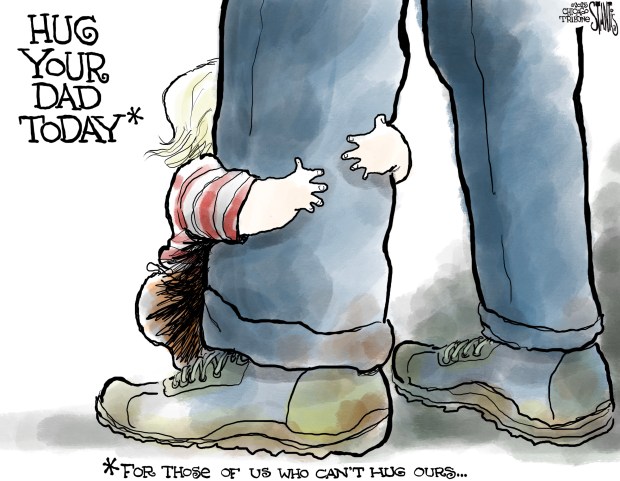It comes as little surprise that the U.S. Agency for International Development (USAID) was the first victim of the “Department of Government Efficiency,” or DOGE.
After President Donald Trump’s administration announced a 90-day freeze on foreign assistance, dozens of senior USAID officials were put on administrative leave, and thousands of contractors were laid off. Then DOGE staff members forced their way into the USAID building in Washington, got unauthorized access to classified materials and servers, and shut down the agency’s website. On Tuesday, the administration issued a directive that all USAID direct-hire personnel will be “placed on administrative leave globally” with vague exceptions for core leadership and mission-critical functions.
With its focus almost entirely beyond our shores, USAID has no obvious constituency to defend it here at home. But make no mistake. This is an illegal assault on an independent agency created by Congress, and it will hurt American national security.
USAID’s motto, emblazoned across every bag of grain and crate of medical supplies we offer the world’s needy, is “From the American People.” But every bit of that work is done for America’s benefit.
USAID was launched during the Cold War specifically to boost our soft power to counter the influence of the Soviet Union. Our national security leaders believed our adversaries were gaining ground among countries and populations the world over and that that threatened our own well-being. Military power and economic influence were not enough to make the friends we needed in order to strengthen our hand. This was not about altruism. It’s about American interests. Let me count the ways.
First, it’s about simple global influence. Today, as our biggest competitor, China is engaged in a trillion-dollar global investment and infrastructure project called the Belt and Road Initiative to build closer economic and diplomatic ties with countries across the world. It was outpacing us on soft power even before USAID was gutted. If we really wanted to compete, we would have doubled or tripled our foreign aid instead of kneecapping it.
Second, USAID programs are central to our global security efforts, by countering terrorism, combating extremism and promoting the stability that is essential for everything from growing commerce to international travel. I could share more about USAID’s work here, but DOGE has taken down all the web pages that explain it. But research of terrorism and insurgent violence has made clear that military solutions aren’t sufficient. Only nonmilitary solutions can address the underlying causes that fuel extremism. About one-quarter of our foreign aid goes to humanitarian assistance and disaster response as well, which also mitigates instability.
Third, foreign assistance is how we stop pandemics from reaching our shores, such as through USAID-funded disease monitoring projects. Ending our health care assistance around the world is a good fast track to returning to the COVID-19 era. Since borders don’t stop viruses, it’s essential that we continue to work with countries such as Uganda, which is currently experiencing a new outbreak of Ebola, or Tanzania, where Marburg virus, another hemorrhagic fever with a mortality rate of up to 90%, is on the rise.
Fourth, foreign assistance is administered by and for U.S. businesses. Helping countries economically develop creates markets abroad for U.S. products. From 2007 to 2017, U.S. exports to USAID partner countries grew three times as fast as exports elsewhere (though DOGE removed the report sharing that data from the web too). Many American businesses participate in public-private partnerships sponsored by USAID, and most foreign assistance goes not to foreign governments or populations, but to American organizations that implement aid projects. About 87% of its nongovernment funding goes to American organizations. The grain, wheat and other commodities that USAID distributes around the world are bought here in America to the tune of about $2 billion a year. Cutting that is going to hurt American farmers.
And, finally, foreign aid does all of this at a bargain. Foreign assistance makes up less than 1% of the federal budget, and USAID’s budget is about $40 billion a year.
If DOGE really wanted to cut waste, it would take a closer look at the Pentagon budget that reached nearly $900 billion last year. (Or, rather, someone without a financial stake in it should do so. Musk’s companies have about 100 contracts with 17 federal agencies, including the Defense Department, making this entire DOGE pursuit one big conflict of interest.) We spend about 23 times as much on hard power to fight war as we do on soft power to prevent it.
The Pentagon has the federal government’s largest budget by far and for a seventh year in a row was unable to balance its books, making it the only federal agency to never comply with federal law requiring an annual audit.
In sum, none of this is about saving taxpayer dollars or ensuring that they are used to further American interests. This is a game to an unelected billionaire who knows not how or why the U.S. government works. But it’s one that will cost America a lot in the end.
Elizabeth Shackelford is senior policy director at Dartmouth College’s Dickey Center for International Understanding and a foreign affairs columnist for the Chicago Tribune. She was previously a U.S. diplomat and is the author of “The Dissent Channel: American Diplomacy in a Dishonest Age.”
Submit a letter, of no more than 400 words, to the editor here or email letters@chicagotribune.com.




